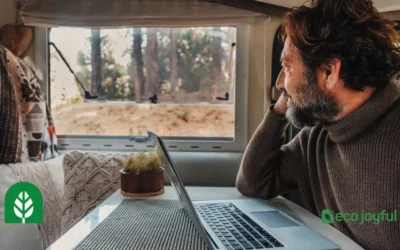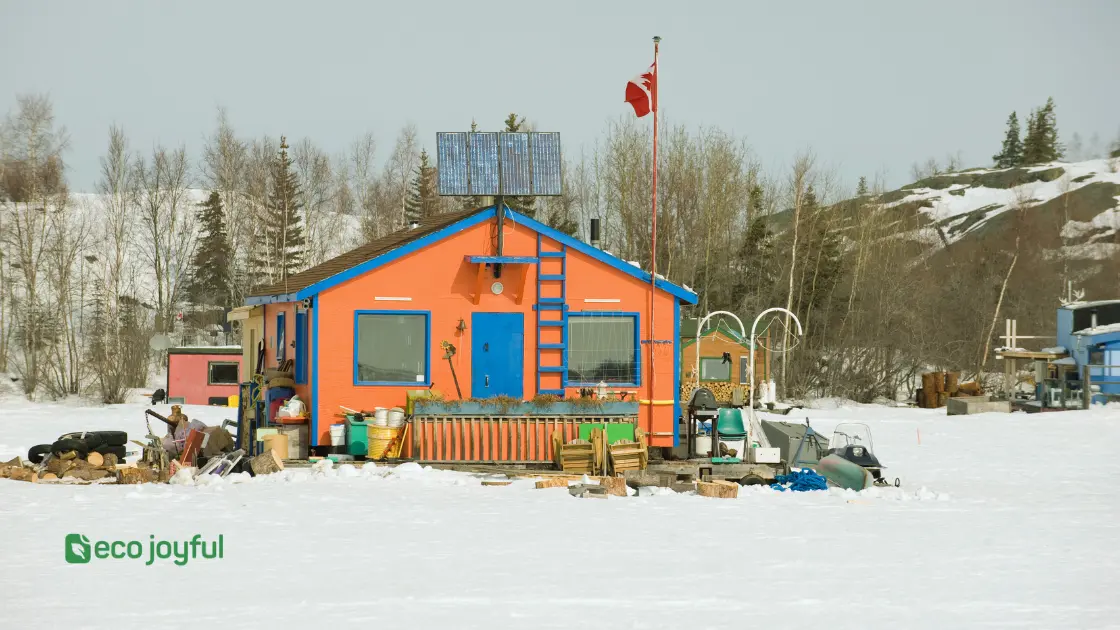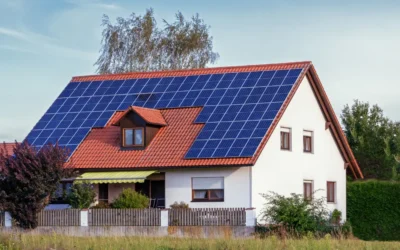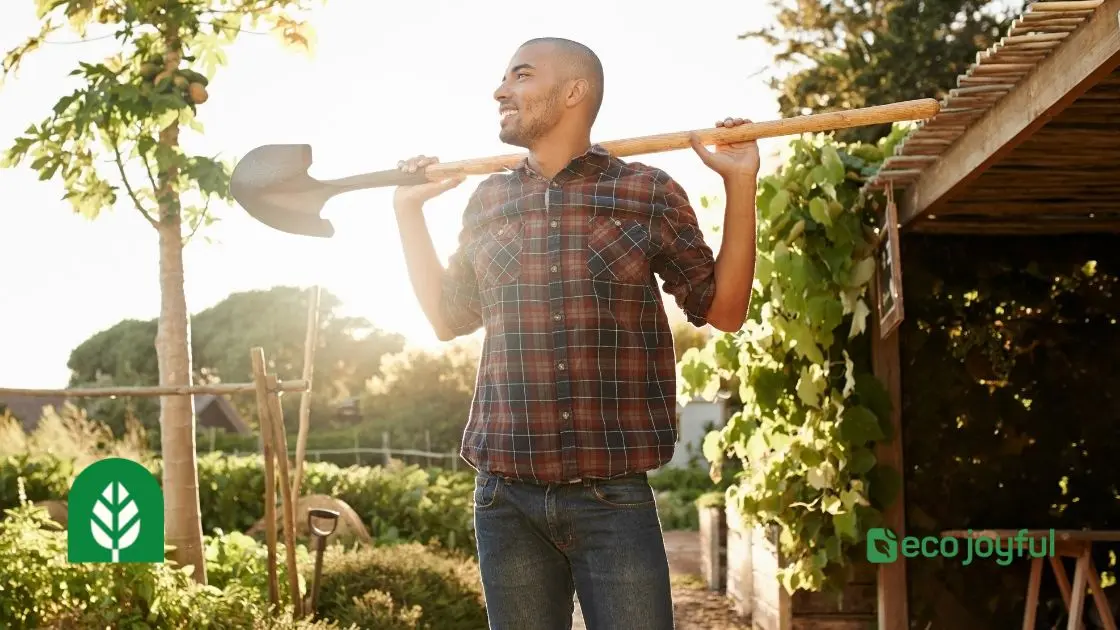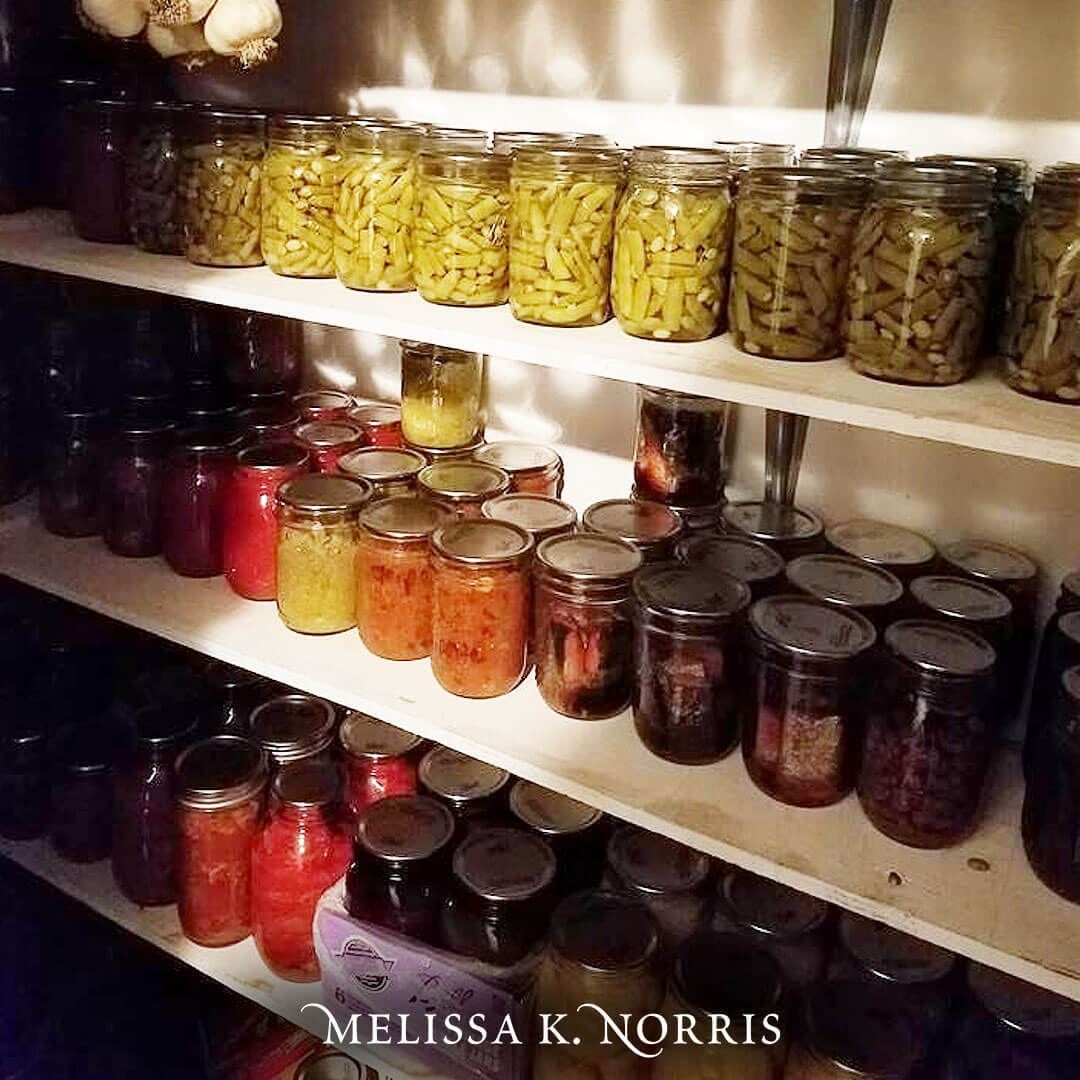Living off the grid can save big money by reducing or eliminating utility bills and other expenses associated with modern living. By using solar panels, growing your own food, and reducing consumption, expenses can be dramatically lowered.
Living off the grid has gained popularity in recent years due to environmental and economic concerns. It involves living a self-sufficient lifestyle, relying on renewable resources and minimizing waste. But aside from this, it can also lead to significant cost savings by reducing or eliminating monthly bills from utilities companies.
From electricity and water bills to property taxes, living off the grid provides a sense of independence and financial freedom. By utilizing solar panels, rainwater harvesting, and other sustainable practices, it’s possible to live comfortably without breaking the bank. We’ll explore some ways to save big money by living off the grid and highlight the benefits of this lifestyle.
Benefits Of Living Off The Grid
Living off the grid offers many financial benefits such as reduced energy bills and living costs. By being self-sufficient and producing their own food and energy, one can save big money in the long run.
Living off the grid has been increasingly gaining popularity in recent years due to the numerous benefits it provides. People who live off the grid rely on sustainable resources and live independently from the grid power, water supply, and gas. Going off the grid is a great way to save big money, reduce our environmental impact, and be less dependent on mainstream society. In this post, we will explore the benefits of living off the grid and how it can help you save money.
Lower Costs Of Living
One of the most significant benefits of living off the grid is its lower cost of living. People living off the grid rely on sustainable resources for their daily needs, such as solar panels for electricity, wind turbines for energy, and rainwater for drinking and bathing. They grow their food in a garden, which not only saves money but also provides fresh and organic produce. By eliminating monthly utility bills and reducing living expenses, they can save a significant amount of money and live a more affordable life without sacrificing comfort or convenience.
Less Dependence On Money
Living off the grid also means less dependence on money, which can be freeing and empowering. Instead of spending money on bills and other expenses, people living off the grid can focus on building self-sufficiency. They learn to live more simply and creatively, making the most from their resources. Living off the grid can also offer an escape from the consumerist culture that can often lead to unnecessary spending.
Environmental Benefits
Living off the grid offers many environmental benefits. People living off the grid rely on renewable resources, reducing their carbon footprint and dependence on non-renewable energy sources. Off-grid living can also help to preserve the planet’s resources by reducing our impact on the natural environment. By living sustainably, we can reduce our waste, conserve water, and take steps towards a more sustainable way of life. Furthermore, living off the grid can help preserve wildlife habitats and reduce our impact on fragile ecosystems.
Living off the grid provides a broad range of benefits that can enhance our daily lives and reduce our environmental footprint. From saving money to reducing our dependence on mainstream society and preserving the environment, the benefits of living off the grid are clear. By adopting an off-grid lifestyle, we can live more sustainably, creatively, and self-sufficiently.
Getting Started With Off-the-grid Living
Living off-the-grid means different things to different people. It could be escaping societal pressures, reducing carbon footprint, increasing self-sufficiency or simply saving money. If you are looking to live off-the-grid, the first thing you need to do is recognize that it’s not an overnight decision. It requires planning, budgeting, and a significant amount of work, but it’s worth it. In this article, we will guide you on how to get started with off-the-grid living, covering planning and budgeting, choosing the right location, building and infrastructure and, lastly, exploring how to generate power through solar power and other energy sources.
Planning And Budgeting
First things first, before you start living off-the-grid, you need to think about your budget. Living off-the-grid requires a significant upfront investment, and it’s crucial to plan for every cent. You need to think about all the costs associated with living off-the-grid, such as land costs, building costs, equipment costs, food, water, and other basic necessities. You will also need to factor in any ongoing maintenance costs. It’s essential to have a comprehensive budget, including contingencies, to help ensure that you have enough money to get started and to sustain your lifestyle in the long-run.
Choosing The Right Location
Choosing the right location is another critical aspect of off-the-grid living. You need to find land that you can own and use as you desire. Factors such as climate, vegetation, and water sources are essential. You will need to consider the land’s topography, as it can affect your water supply and solar power generation. It’s recommended to visit the location physically before purchasing or renting the land.
Building And Infrastructure
If you are not buying an already off-grid property, you will need to build your own infrastructure. You will need to build a home that is well-insulated, energy-efficient, and can withstand harsh weather conditions. It’s also crucial to have a reliable and economical water source, and you will need to ensure that your sewage is appropriately disposed of. You may opt for non-conventional buildings like container homes or tiny homes.
Solar Power And Other Energy Sources
Generating power off-the-grid can be a challenging task. However, various alternative energy sources like solar, wind, and hydro are available. Solar power is the most commonly used as it is easy to install, requires little maintenance, and is the most cost-effective. With the right solar panels and batteries, your home can be powered with long-lasting, sustainable energy. With additional infrastructure to back you up, you can significantly save on your electricity bills.
Sustainable Living Practices For Off-grid Life
Living off the grid can offer significant savings, but adopting sustainable practices is key. From using renewable energy sources to reducing water and food waste, there are many ways to lower costs and live a fulfilling off-grid life.
Living off the grid can be a sustainable way of life that can also save you a lot of money. Sustainable living practices are essential to help you reduce dependence on traditional energy and lifestyle sources, while also helping the environment. By growing your own food, harvesting and preserving food, managing water efficiently, and using natural building materials, you can lead a comfortable and eco-friendly off-grid life.
Growing Your Own Food
Growing your own food is one of the best ways to save money while living off the grid. You can also ensure that your food is free of harmful chemicals and other additives that are often found in store-bought produce. By using permaculture techniques such as crop rotation and companion planting, you can maximize the efficiency of your garden and reduce waste. Planting fruit trees, vegetables, and herbs are an excellent way to ensure a steady supply of healthy and fresh food.
Table of Contents
Harvesting And Preserving Food
Once you have grown your food, it’s important to know how to preserve it without refrigeration. Canning, dehydrating, and fermenting are excellent preservation methods that can help keep your food fresh and nutritious for an extended period. You can also store food in a root cellar, which is a natural way of preserving food. Proper food storage techniques are essential to ensure that your hard work in the garden doesn’t go to waste.
Water Management Techniques
Off-grid living often means managing your own water supply and ensuring that you have a sufficient amount of water for all your needs. Using rainwater catchment systems, wells, and springs are all effective ways of ensuring a steady supply of water. You can also use low-flow showerheads and faucets, and install composting toilets to reduce water use. By collecting and using greywater, you can reduce your water usage even more.
Natural Building And Repairs
Using natural building materials such as straw, clay, and timber can help keep your home cool in summer and warm in winter. You can also use natural insulation materials such as wool and cellulose to improve energy efficiency. When it comes to repairs, using natural materials such as wood, clay, and straw bale can help reduce waste and save you money. You can also learn how to repair things yourself rather than hiring professionals for the job.
In conclusion, using sustainable living practices can help you lead a comfortable and eco-friendly off-grid life. By growing your own food, preserving food, managing water efficiently, and using natural building materials, you can save money while also protecting the environment.

Credit: www.wikihow.com
Challenges And Solutions For Living Off The Grid
Living off the grid is a great way to save money, but it comes with its challenges. From generating electricity to sourcing food and water, self-sufficiency requires careful planning and preparation. By using sustainable technologies and adopting a more self-reliant lifestyle, however, it is possible to live off the grid while reducing costs and minimizing environmental impact.
Living off the grid has become increasingly popular in recent years, as people look for sustainable ways to live and reduce their carbon footprint. However, the decision to go off-grid comes with its own set of challenges. In this article, we’ll explore some of the challenges and solutions for living off the grid, including limited access to modern amenities, finding food, water, and energy, ensuring health and safety, and maintaining social connections.
Limited Access To Modern Amenities
Living off the grid means giving up many of the modern amenities we take for granted, such as electricity, running water, and even internet access. This can be a significant adjustment for those used to the convenience of modern life.
One solution to this challenge is to invest in alternative energy sources, such as solar or wind power. These can provide a reliable source of electricity without relying on the grid. Similarly, rainwater harvesting and filtration systems can provide a sustainable source of clean water. This requires an initial investment, but it can pay off in the long run.
Techniques For Finding Food, Water, And Energy
Living off the grid means relying on natural resources for food, water, and energy. This can be a challenge, especially in areas with harsh climates and limited resources.
One solution to this challenge is to take a self-sufficient approach by growing your own food, collecting rainwater, and using renewable energy sources such as solar or wind power. Another solution is to rely on local resources, such as hunting, fishing, and foraging for wild edibles.
Ensuring Health And Safety
Living off the grid can have its own set of health and safety risks. Without access to modern medical facilities and emergency services, it’s important to take measures to ensure your own safety and well-being.
One solution is to educate yourself on first aid and emergency preparedness. This can include taking courses, such as wilderness first aid, and having a well-stocked emergency kit. Additionally, maintaining a healthy lifestyle through exercise and a balanced diet can help prevent illness and injury.
Maintaining Social Connections
Living off the grid can also mean living in isolation, without easy access to social connections. This can be especially challenging for those used to the constant connectivity of modern life.
One solution is to build a strong local community of like-minded individuals. This can be done through attending local events, joining community groups, and collaborating on projects. Additionally, online communities can provide a sense of connection and support, even from remote locations.
In conclusion, living off the grid can be a challenging but rewarding lifestyle choice. By addressing these challenges and finding solutions, you can enjoy a sustainable and self-sufficient way of life.
Success Stories Of Off-the-grid Living
Are you tired of living a life filled with consumption and constant expenses? Perhaps the solution to your problems lies in off-the-grid living. This lifestyle choice is radically different from the norm we are all accustomed to. It involves disconnecting from the grid, and living self-sufficiently with minimal impact on the environment. While it can seem daunting, there are countless success stories of people who have adopted this lifestyle and are thriving. In this post, we will explore some of these stories, covering families, entrepreneurs, retirees, and even those living off the grid internationally.
Families And Communities Living Off The Grid
A growing number of families are making the switch to off-the-grid living. These families often do so as a way to provide a better life for their children, free from the distractions of modern life. One example is the Adams family who live in Northern California. With three young children, they decided to move to a small cabin in the woods. They grow their vegetables and raise their livestock. Their children are homeschooled and have developed a love of the outdoors. They’ve also learned a lot about self-reliance, which gives them a sense of pride and independence.
In another example, the Braga family lives in Brazil, where they have built an entirely off-the-grid community with other like-minded families. Together they have created a village that is entirely self-sufficient. They grow their food, raise livestock, and even generate their electricity through solar panels. Each family contributes to the community by sharing their skills, knowledge, and resources. This way of life has not only helped them save money but has also created a supportive and happy living environment.
Entrepreneurs Pursuing Sustainable Business Models
Off-the-grid living can also offer opportunities for entrepreneurship. Many people are starting eco-friendly businesses that align with their lifestyles and values. One example is David and Mary Belding, who created an off-the-grid glamping site in Florida called Harmony Gardens. They built three luxury tents equipped with composting toilets and solar power while using local materials and techniques. They offer outdoor yoga classes and workshops, which provide additional sources of income. The couple has been able to earn a sustainable living while living in harmony with nature.
Retirees Finding New Purpose In Off-grid Living
Retirement is an excellent opportunity to make a fresh start in life, and off-the-grid living may be the perfect way to do it. One such inspiring example is that of Irmi and Alwin Kopse, who decided to move off the grid in their early sixties. They bought a small plot of land in the mountains of Germany and began building a self-sufficient homestead. They now have their water source, generate their power and grow their food. They live debt-free and without the distractions of modern life. The Kopse’s have shared that they have never been happier, “living life on their terms,” and enjoy good health due to their active lifestyle.
International Examples Of Off-the-grid Living
Off-the-grid living is not just for those living in North America or Europe. Many people around the world have chosen this way of life. In Costa Rica, a group of friends built a small off-the-grid community in the jungle, living without internet or phones, while growing their food and generating power through solar panels. In Australia, a couple built a self-sufficient life on a remote island off the eastern coast, growing most of their food and powering their home using wind turbines. There are countless examples of people living off the grid worldwide.
These success stories highlight the possibilities of off-the-grid living while also emphasizing the significant changes that one must be willing to make in their way of life. Increased self-sufficiency and lower expenses offer a more sustainable and fulfilling way of living.
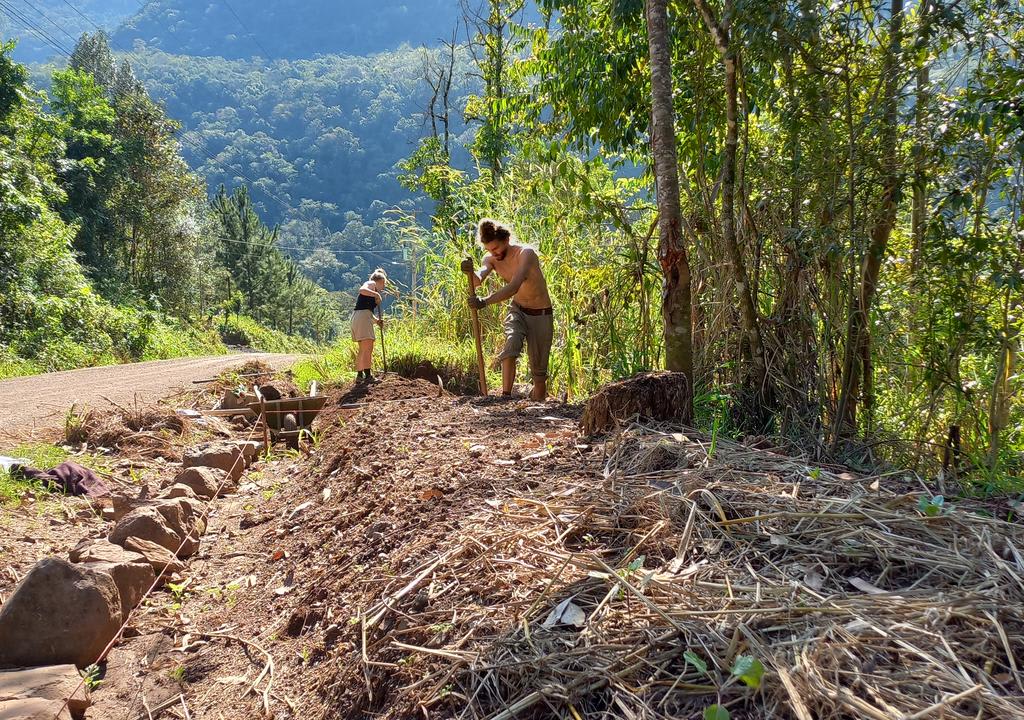
Credit: www.worldpackers.com
Conclusion: Is Off-the-grid Living Right For You?
Living off the grid can be a great way to save money, reduce your environmental impact, and enjoy a simpler way of life. However, it’s not for everyone. Consider your lifestyle and priorities before making the decision to live off the grid.
Living off-the-grid is a lifestyle that has gained a lot of attention in recent years. There are many benefits, including cost savings, self-sufficiency, and a reduced carbon footprint. However, off-grid living is not for everyone. Before making the leap, it’s important to assess both the costs and benefits of this lifestyle, as well as your own readiness to live without modern amenities. Here are some important factors to consider.
Costs And Benefits Of Off-the-grid Living
One of the main benefits of off-grid living is the cost savings. By generating your own power and growing your own food, you can greatly reduce your monthly expenses. However, there are also significant upfront costs associated with setting up an off-grid lifestyle. These include the cost of land, solar panels, batteries, and other equipment needed to generate and store power. It’s important to carefully consider both the short-term and long-term costs and benefits before committing to off-grid living.
Assessing Your Readiness For Off-grid Life
Living off-the-grid requires a significant amount of self-sufficiency and resourcefulness. Before making the transition, it’s important to assess your own skills and readiness. Are you comfortable with basic carpentry and plumbing? Can you grow your own food and preserve it for the winter months? Do you have the skills to maintain your own power system? Consider taking classes or workshops to build these skills before making the leap to off-grid living.
Tips For Making The Transition To Off-grid Life
Making the transition to off-grid living can be challenging, but there are steps you can take to make the process smoother. Consider starting small by implementing one off-grid system at a time, such as solar power or rainwater collection. Gradually increase your self-sufficiency as you become more comfortable with the lifestyle. It’s also important to build a strong community of like-minded individuals who can offer support and advice. Finally, be patient with yourself and recognize that the transition to off-grid living is a process, not an overnight change.
Living off-the-grid can be a rewarding lifestyle for those who are willing to put in the effort and make the necessary changes. However, it’s not for everyone. By carefully assessing both the costs and benefits of off-grid living, your own readiness for this lifestyle, and by taking small steps to make the transition, you can determine if living off-the-grid is right for you.

Credit: offgridliving.net
Conclusion
By living off the grid, you can take back control of your finances and reduce your carbon footprint. It may seem daunting at first, but with careful planning and research, it is an achievable lifestyle choice. By cutting out unnecessary expenses and relying on renewable resources, you can save big money in the long run and contribute to a healthier planet.
The benefits of living off the grid are numerous, and with the right mindset, anyone can make it work for them. Time to make a change, and start living sustainably!


